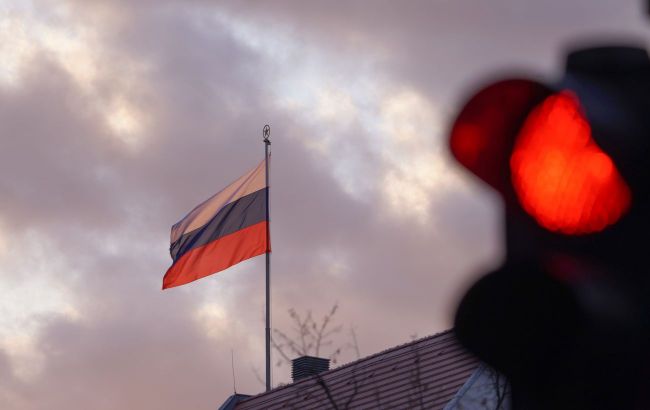EU imposes 17th package of sanctions against Russia: Who's on list
 Photo: The EU hit Russia with sanctions (Getty Images)
Photo: The EU hit Russia with sanctions (Getty Images)
The EU has increased pressure on the Russian economy by targeting maritime shipping, oil traders, and their foreign enablers, the EU Council's website reports.
Russia's 'shadow fleet'
The EU Council today adopted its largest package of measures targeting Putin's 'shadow fleet', doubling the number of vessels banned from port access and from receiving a wide range of services.
A total of 189 vessels from third countries have been sanctioned, bringing the total number of listed vessels to 342. These ships are part of Russia's 'shadow fleet' and are responsible for transporting Russian oil, engaging in high-risk shipping practices, or supporting Russia's energy sector.
The restrictive measures on the shadow fleet are aimed at depriving it of operational capabilities, thereby reducing revenue from oil sales that sustain Russia's war economy.
In addition, the EU is introducing individual sanctions (asset freezes and funding bans) targeting the shadow fleet ecosystem, in particular, entities enabling its operations.
These measures affect shipping companies responsible for transporting crude oil and petroleum products by sea and those engaging in unsafe maritime practices during the transport of Russian oil, including companies based in the United Arab Emirates, Türkiye, and Hong Kong.
One major insurer of Russia's oil transport sector has also been added to the list.
Since the EU introduced oil price caps and sanctions against the 'shadow fleet', Russia's related revenues have dropped by €38 billion. In March 2025, Russia's revenue was 13.7% lower than in March 2023, and 20.3% lower than in March 2022.
Energy
To further restrict Russia's sources of income, the EU is also imposing restrictive measures against Surgutneftegaz, a major Russian oil company that generates significant revenue for the Russian government and directly fuels its war efforts. A key Russian oil transport company has also been added to the list.
Military - industrial sector
The EU has imposed sanctions on over 45 Russian companies and individuals supplying the Russian army with drones, weapons, ammunition, military equipment, critical components, and logistical support.
Making full use of the strengthened legal framework adopted in the 16th sanctions package, the EU is also expanding targeted measures to industrial enterprises, including Russian and Chinese companies that supply machine tools to the Russian military and industrial sectors.
The EU continues to address third-country support as well, adding three Chinese companies (including state-owned), as well as Belarusian and Israeli entities, that supply critical components to the Russian military, in particular for drone manufacturing.
The Council has also added 31 new entities to the list of those subject to stricter export restrictions concerning dual-use goods and technologies, due to their support of Russia's military-industrial complex in its aggressive war against Ukraine.
Some of these entities are located in third countries (Serbia, the United Arab Emirates, Türkiye, Vietnam, and Uzbekistan) and have been involved in circumventing export restrictions, particularly regarding drones or computer numerical control machine tools.
The EU has also introduced additional export restrictions on goods that contribute to Russia's military and technological enhancement, its defense and security sector, and the development or production of its military systems, including chemical precursors for energetic materials and spare parts for machinery.
Occupied territories
Today’s listings also target the looting of cultural heritage in Crimea and the illegal exploitation of Ukraine's agricultural production.
The relevant legal acts will be published soon in the EU's Official Journal. With the addition of 75 new listings today (17 individuals and 58 entities), the EU's restrictive measures in response to actions that undermine or threaten the territorial integrity, sovereignty, and independence of Ukraine now apply to more than 2,400 individuals and entities.
Those listed will have their assets frozen, and EU citizens and companies are prohibited from making funds available to them. Individuals are also banned from entering or transiting through EU member states.
As previously reported, on May 20, the EU adopted its 17th sanctions package against Russia, targeting nearly 200 vessels of the so-called 'shadow fleet.'
In addition, the United Kingdom introduced new large-scale sanctions against Russia on the same day, aimed at increasing pressure on Moscow's military, energy, and financial sectors.

